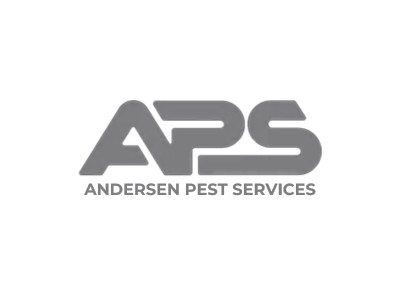We all know that children develop at different rates, but they all need support and nurturing to find their first smile, to take their first steps, and to utter their first words. And as they grow and develop, their needs grow too, some more than others. As parents, we want our children to be able to communicate their needs and to feel confident in doing so. After all, communication, both verbal and non-verbal, is essential for all to achieve. But knowing when to see a speech pathologist isn’t always clear.
That is why we have put together this guide to help you understand speech and language milestones, and identify challenges as early as possible.
When to see a speech pathologist?
In our profession, stories of parents being told to just ‘wait and see’ when it comes to speech and language development is not unusual. Often, it can be easier for a parent to take this approach and hope that their child will ‘grow out of it’. But remember, while you are taking the ‘wait and see’ approach, your child could become frustrated and disconnect with those around them.
When it comes to seeking advice from any professional, we always recommend going with your gut and getting in sooner rather than later. As a parent, you are the one who truly knows what is going on with your child, so here are our recommendations on seeking a speech pathologist.
Our recommendations
- you or other people are having difficulty understanding your child
- people think your child is younger than they are because of the way they speak
- your child is being teased or showing frustration because of the way they talk
- your child is using fewer words than other children their age
- your child stutters
- your child’s interactions or play seems unusual or inappropriate
- your child is struggling with reading or writing
- there is a diagnosis that could affect speech or language such as hearing loss, auditory processing disorder, autism spectrum disorder or developmental delay
Communication and language challenges can have a widespread impact on a child’s life. It can affect their academic performance, be socially isolating, and impact their choices in adulthood. It is because of this that early intervention by a speech pathologist is not only recommended but can have a significantly positive impact on their daily life – now and in the future.
Understanding Speech and Language Milestones
In addition to the little things you might notice or even your gut instincts, milestones, including Speech Sound Milestones, are a great tool to help you understand your child’s development and when they might need additional support. Utilising information from Speech Pathology Australia, we have pulled together a brief guide outlining specific speech and language skills that your child may achieve at certain ages:
18 months old
- Can say ‘no’
- Uses 10 or more words
- Understands the names of familiar objects (e.g. ‘doggy’, ‘ball’, ‘bed’, ‘car’)
- Answers the question “what’s this?”
- Understands simple commands
Two years old
- Can use a large variety of consonants
- Points to some body parts when named
- Uses two-word combinations (e.g. “more biscuit”, “Daddy gone”)
- Enjoys listening to stories
- Can name some pictures in stories
- Has a vocabulary of at least 50 words
- Can sing simple songs or nursery rhymes
Three years old
- Correctly produces the sounds made by the letters p, b, m, w, t, d, n, g, h, y
- Pronounces the final consonant in a word
- Is able to follow a two-part instruction (e.g. “Go to the kitchen and get your juice”)
- Can participate in short conversations
- Puts three or more words together in a sentence
- Asks “why?”
- Can talk about something that happened yesterday or last week
- Is using basic grammar
Four years old
- Talks in whole sentences
- Uses adult-like grammar
- Asks a lot of questions
- Answers “who”, “how”, “how many” questions
- Tells stories you can easily follow
- Uses language to create imaginative pretend play with others
Five years old
- Explains how an object can be used
- Answers ‘when’ and ‘why’ questions
- Uses language to talk about past and future events
- Participates in detailed conversations
- Has little trouble thinking of what to say
- Is not having too many difficulties learning to read
Of course, the above is just a guide, and children may exhibit varying developmental challenges and delays at different stages of their life. When your child moves beyond five, for example, you should be on the lookout for increased moments of frustration. School-aged children will often become agitated and disengaged if they are experiencing difficulties with speech and language skills.
As we have mentioned above, if your child has not achieved certain skills and you are worried about their development, we recommend you seek advice from a speech pathologist as early as possible.
Taking the Next Step
If you have identified a challenge, the next step in your speech pathology journey is to find the right speech pathologist. Choosing a speech pathologist is one of the most important steps when it comes to securing the right support and pathway for your child. Sure, you can jump online and see what Google brings up. But while independent research is advised, it can often present an overwhelming number of choices.
The right speech pathologist
You need to ask the right questions, including:
- Are you certified?
- Are you child-friendly?
- Are you experienced and do you understand my child’s challenges?
- Do you work with the family and educators to ensure the best results?
The right speech pathologist should also set your mind at ease and remind you that you don’t need to panic. If you have trusted your instincts, you are already on the right path, and your speech pathologist will help you navigate the next steps with support and understanding.
Getting started
If you’re concerned about your child’s development and looking for the best speech pathologist, A Growing Understanding Speech Pathology offers services that are centred around growing the understanding of not only children but those who care for and support them – you. As your child grows and develops during their speech pathology journey, we will support you and help you develop the right skills to assist them at home and during your daily routine.
Contributor:
![]()
A Growing Understanding | Speech Pathology
Owner: Lauren Haskins
Description: Everything in life needs a strong support system to grow. We will work with you and your child to build foundation skills that support the development of communication abilities, encourages growth, and cultivates confidence. A Growing Understanding Speech Pathology is a respected and independent Newcastle, Lake Macquarie & Nelson Bay speech pathology service, with a strong reputation for high quality and evidence-based care.
Phone: 02 4044 1122
E: hello@agrowingunderstanding.com.au
W: https://www.agrowingunderstanding.com.au
F: https://www.facebook.com/agrowingunderstanding
I: https://www.instagram.com/growunderstanding/



















